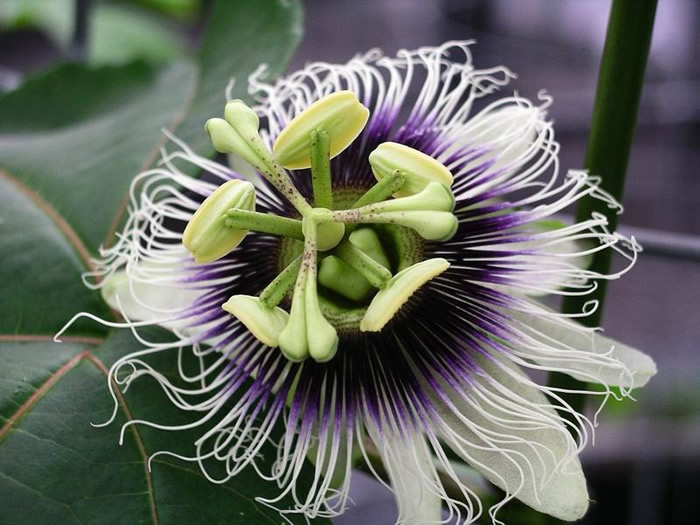This past summer, I brewed a similar batch to this one as well as a Belgian Wit. Personally, I think it does very well in an American Wheat but others at my homebrew club liked the wit better. While the wit was more tart, I feel the fruit flavor and aromas were in better marriage with the malt and yeast profile in the American Wheat I brewed. Part of me also thinks that beer fans are also more partial to any Belgian style over a style like American Wheat which can have a bad reputation as a "blonde ale".
I'm getting better with BeerSmith 2. Like with most software, it has had its learning curve. I still see calculated values that don't match my brew day. Since the Chillindamos Brewhaus will experience a major upgrade in the future, I will invest the time at a later date to match the software with my brewing process. I'm wondering if anyone else uses the software with MoreBeer!s SMART system? Here's a description of the mashing process I'm adopting:
SMART is a method of maintaining or raising the temperature of your Mash. SMART stands for Step Mash Adjusted Recirculation Temperature. While the acronym is a bit of a stretch, it is a smart way of adjusting your Mash temperature without the concerns of scorching that can be associated with applying direct flame or use electric heating elements.
The way it works: By using a pump, you move liquid wort out the bottom of the Mash Tun through a heat exchanger (a copper coil) located in your Hot Liquor Tank and then gently return it to the top of the grain bed. This heat exchange is very gentle and will not have any caramelizing effects on the wort. Another advantage of SMART systems is wort clarity. When you are doing recirculation you are using the grain bed as a filter to remove particulate from the recirculating wort. This allows you to transfer already cleared wort into the Boil Kettle.
 |
| Passiflora edulis, the flower of lilikoi. |
Lilikoi Wheat
|
American Wheat or Rye Beer
|
BJCP:
6D
|
Date: 12/04/2011
|
|||||||||||||||||||||||||||||||||||||||||||||
Type: All Grain
|
Brewer: Sean
|
|||||||||||||||||||||||||||||||||||||||||||||
Batch Size: 5.00 gal
|
Asst Brewer:
|
|||||||||||||||||||||||||||||||||||||||||||||
Boil Time: 90 min
|
Equipment: Chillindamos Brewhaus
|
|||||||||||||||||||||||||||||||||||||||||||||
Est Original
Gravity: 1.057 SG
|
Measured Original Gravity:
1.059 SG
|
|||||||||||||||||||||||||||||||||||||||||||||
Est Final Gravity:
1.012 SG
|
Measured Final Gravity:
1.006 SG
|
|||||||||||||||||||||||||||||||||||||||||||||
Estimated Alcohol by Vol:
6.0 %
|
Actual Alcohol by Vol: 7.0 %
|
|||||||||||||||||||||||||||||||||||||||||||||
IBUs (Tinseth’s):
15.4 IBUs
|
Est Color:
4.5 SRM
|
|||||||||||||||||||||||||||||||||||||||||||||
Total Hop Weight: 1.00 oz
|
Calories: 194.3 kcal/12oz
|
|||||||||||||||||||||||||||||||||||||||||||||
Description: Bryan shipped a gallon of fresh lilikoi from his backyard. He crushed and lightly pasteurized the fruit. This batch is not as intensely aromatic and flavorful as the last two arrivals. Another good friend, ALF, says the acidity is so high that pasteurization is not necessary.
I typically do a 70/30% grist ratio with my American Wheat recipes but stepped this up a bit in the pale malt along with a slightly higher mash temp to cut just a bit off the tart. This is the 3rd homebrew using Lilikoi juice and I also have a mead in progress as well. In my opinion, this is an outstanding fruit to work with for its aromatics, flavor, tartness, and hue contribution (a saturated orange juice color). |
||||||||||||||||||||||||||||||||||||||||||||||
|
||||||||||||||||||||||||||||||||||||||||||||||
|
||||||||||||||||||||||||||||||||||||||||||||||
Mash Type: Single Infusion, Medium-Light Body, No Mash Out
|
Total Grain Weight:
11 lbs
|
|||||||||||||||||||||||||||||||||||||||||||||
Sparge Temperature:
168.0 F
|
Pre-boil Volume:
5.95 gal
|
|||||||||||||||||||||||||||||||||||||||||||||
Days in Primary: 13.00
|
Primary Temperature:
65.0 F
|
|||||||||||||||||||||||||||||||||||||||||||||
Days in Secondary:
10.00
|
Secondary Temperature:
67.0 F
|
|||||||||||||||||||||||||||||||||||||||||||||
Days in Tertiary: 7.00
|
Tertiary Temperature:
65.0 F
|
|||||||||||||||||||||||||||||||||||||||||||||
Carbonation Type:
Keg
|
Volumes of CO2: 2.5
|
|||||||||||||||||||||||||||||||||||||||||||||
Pressure/Weight:
12.27 PSI
|
Carbonation Used:
Keg with 12.27 PSI
|
|||||||||||||||||||||||||||||||||||||||||||||
Keg/Bottling Temperature:
40.0 F
|
Storage Temperature:
40.0 F
|
|||||||||||||||||||||||||||||||||||||||||||||
Notes: At kegging, it was determined by Michelle (my senses were ruined by a recent cold) to add more lilikoi juice to increase aromatics, flavor, and tartness. 1/2 pint of juice was added directly to the keg. No secondary fermentation, went straight to keg. White Labs WLP001 used directly from vial, no starter. By the look at the bottom of the primary after racking, the yeast bed looked very frothy white and healthy. Certainly cleaner than most yeast beds after primary though could be due to lower trub amounts in primary.
Lilikoi Juice likely added sugar content that contributes to the OG. It also changes the pH at each addition. |
||||||||||||||||||||||||||||||||||||||||||||||
Created with BeerSmith
|
||||||||||||||||||||||||||||||||||||||||||||||
Sources:
MoreBeer! "Analog S.M.A.R.T | MoreBeer." Beer Making Kits and Home Brewing Supplies | MoreBeer. MoreBeer! Web. 18 Dec. 2011.
Passiflora Edulis Forma Flavicarpa. Photograph. Passiflora Edulis Forma Flavicarpa.
By Agricultural Research Service, USDA. Wikipedia,org, 13 Aug. 2006.
Web. 18 Dec. 2011.
.






What a coincidence I just did a taste test on my Lilikoi Cider tonight, and I use the term cider loosely. When I did my initial tests on the Lilikoi juice the Titratable Acidity was insane, 16% (or atleast that's where I gave up on trying to find an end point) and the pH was 2.64 (somewhere near Lemon Juice). The FDA says that foods need to have a pH of 4.2 or lower to be considered safe without refrigeration so by that standard Lilikoi is without a doubt very inhospitable for micro organisms.
ReplyDeleteOn another note my Lilikoi Cider, I only say cider because I used fresh apple cider as a base, is coming around very nicely. It has an amazing bouquet, I fermented at around 47 F, and the taste is simple amazing. The alcohol content is too high to be a traditional cider, so it will end up in champagne bottles and be labeled as something like "Sparkling Passion".
Cheers
Thanks, ALF. Good to know the TA and pH on the juice. Call that concoction whatever you want, it sounds awesome. Guidelines schmidelines! Lilikoi Cider sounds like the best descriptor.
ReplyDeleteI'm sure you'll quickly find Bryan's lilikoi to be a great ingredient when you want a tart expressive ingredient.